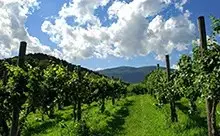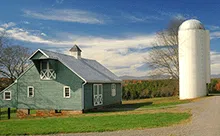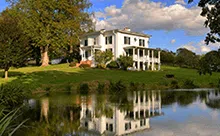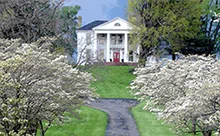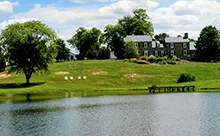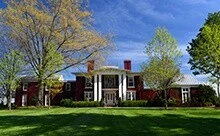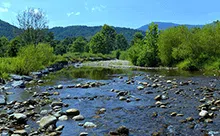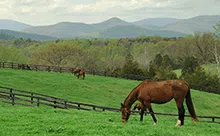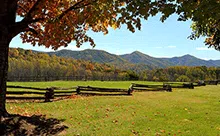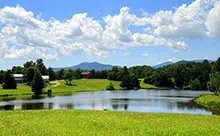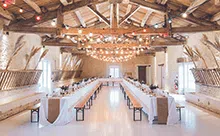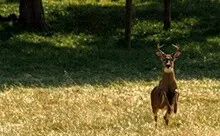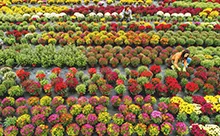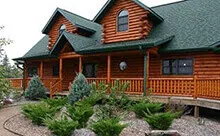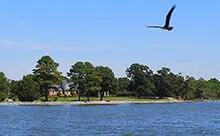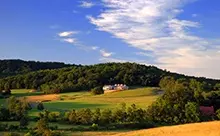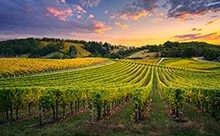
home / virginia real estate / Farms / Starting Your Virginia Farm / Viognier
Growing Viognier Grapes
Viognier in Virginia
Although Viognier is a lesser-known grape variety, its acreage is steadily increasing worldwide in order to meet the growing consumer demand. Originally Viognier was confined almost exclusively to the Rhône Valley of France, an area recognized globally for superior wine production.
Since the 1980’s, Viognier’s acreage has increased from merely 50 acres globally to 1000 acres in France, 500 acres in California, and 30 acres in Virginia. Because of the high quality of Viognier produced by Virginia vineyards and its high global consumer demand that cannot be met with current acreage, more and more farmers beginning vineyards are choosing to plant Viognier.
An early-season variety, Viognier is produced as a varietal wine that is typically high in color, alcohol, and body. It has distinctive aromas of apricots, peaches, honeysuckle, melon, orange, muscat, pears, honey, cloves, and tropical fruits with a slight muskiness.
In order to preserve these delicate aromas, the grapes should be chilled prior to pressing. Many also whole cluster press Viognier, select less vigorous yeasts, and ferment the wine in new oak in order to highlight the aromas while limiting the extent and intensity of varietal character.
Why Grow Viognier?
Though few Virginia wineries are currently purchasing Viognier fruit, consumer interest in Viognier wines is strong, making the variety perfect for those who make wine with their own fruit.
Viognier tends to be a high sugar accumulating variety, and since aromas and flavors develop in the fruit at relatively high sugar levels, the wine made from Virginia-grown Viognier tends to be richly flavorful and complex.
The overall quality of the fruit grown in Virginia has been good to excellent, making it a reliably profitable variety for those who own both vineyard and winery. The grapes are also resistant to bunch rot that plagues many other commonly grown varieties in Virginia.
Weaknesses of Viognier
Budding only a few days after Chardonnay, Viognier is also susceptible to injury from spring frost and should only be planted in excellent sites that aren’t subject late frosts.
Though Viognier is susceptible to winter cold injury below -11° Fahrenheit, most vineyard sites in Virginia rarely reach such a cold temperature, making Viognier a relatively hardy white wine variety. Vine growth can be weak with only modest crop yields, averaging about three tons per acre.
The low yields are primarily due to bud necrosis, a physiological disorder that causes the death of buds early in the season of their initiation.


















